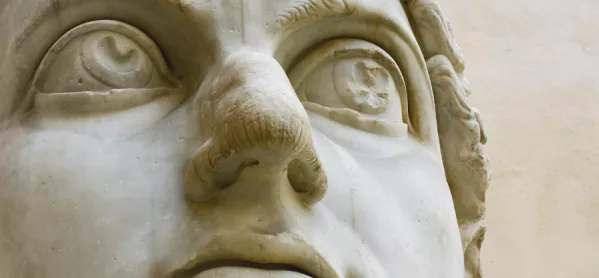In his book, Social Class in the 21st Century, Michael Savage describes a new model of social class, in which society is split into seven distinct sections.
At the bottom of this new social ladder is the “precariat” class, which Savage describes as “the most deprived class of all with low levels of economic, cultural and social capital. The everyday lives of members of this class are precarious.”
While there is little that we teachers can do to improve the immediate economic status of our students, we can try to make them more upwardly mobile (if we choose to see this as desirable) by improving their ‘cultural capital’.
Coined by the French sociologist, philosopher, and anthropologist, Pierre Bordieu, the term ‘cultural capital’ refers to the accumulation of skills, experiences, and possessions that one naturally acquires simply through belonging to a particular social class.
Measuring cultural capital
Certain forms of cultural capital are more highly regarded than others. For example, listening to classical music is generally viewed more favorably than listening to rap music. Similarly, reading obscure 18th-century poetry is judged, in some circles, to hold more cultural capital than reading celebrity gossip magazines.
According to Savage, access to the “elite” class, at the top of the social ladder, depends upon your exposure to highbrow cultural pursuits. Therefore, if we are able to improve students’ cultural capital, we increase their chances of moving beyond the precariat class.
But how do we do this - particularly at a time when school budgets are already tight?
I asked people on Twitter to suggest cheap or free activities that can help to boost students’ cultural capital. Here are six of the best suggestions:
1. The Globe Theatre
At only a fiver a ticket, punters can experience Shakespeare as it was intended to be experienced: standing for three hours in a theatre with no roof, as experts in their field laugh, cry, and die their way through the Bard’s greatest works.
2. National Theatre on Demand in Schools
If the Globe in London is too far away for you, the National Theatre broadcasts productions free to schools who sign up. Why not create your own Shakespearean theatre - minus the bear-baiting, preferably - in the school hall and let students experience Rory Kinnear’s Hamlet, or Cumberbatch’s Frankenstein on the big (projector) screen?
3. Library visits
Sadly, we now live in an age in which reading is considered a “highbrow” pursuit. For many students, books can be too expensive to buy - and libraries are intimidating places if you don’t know how to use one. Support your students - and your local library - by arranging regular visits. Librarians are keen to accommodate schools and will put on tailor-made talks about a wide range of literary or reading-related topics.
4. Free museums
The big London museums - the British Museum, the National History Museum and the Science Museum, to name but a few - are all well worth a visit, but there are amazing free museums all over the country. The National Museum of Scotland (Edinburgh), The Museum of Science and Industry (Manchester), The Science and Media Museum (Bradford), Pitt Rivers Museum (Oxford) and the Booth Museum (Brighton) all get rave reviews.
5. Walking
If there isn’t a museum within reasonable distance, why not go on a guided tour of your local area? The cities, towns, and villages of the UK are replete with history. Treasure Trails offers cheap, downloadable guides for a broad range of UK destinations ranging from Aviemore to Ulverston, and Broadstairs to Wylam Waggonway. See what’s near you and get out there.
6. University visits
There’s more to university visits than careers fairs. Many universities have whole departments dedicated to working with local schools, with a view to increasing FE participation from poorly-represented groups. Call your local university and see what they can offer you. University dramatic societies may put on plays for students and there are often free lunchtime musical recitals on offer. Even better, many universities will offer lecture experiences for students on topics you suggest.
Matt Pinkett is a head of English in the South-East of England. He tweets at @Positivteacha
Want to keep up with the latest education news and opinion? Follow Tes on Twitter and like Tes on Facebook




